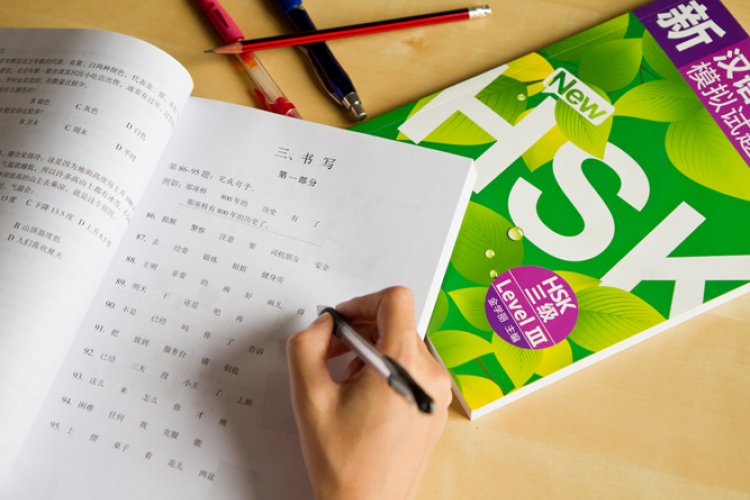Will Beijing Reduce the Importance of Learning English in School?
The battle over English: It's long been happening in France and more recently, there has been anti-English language remarks by an Indian leader. What will become of this world language, especially in China, where English has, in the past several years, been one of the primary measures of success in schools? Offbeat China reported yesterday that Beijing education authorities are considering downplaying the emphasis they school system puts on English language learning, reasoning that with too much focus on English, Chinese language – and with it, it's culture – risks getting lost.
Sound familiar?
Read the full article below:
“4-year-olds are the main targets of our English training programs. Parents fear that it would be too late to start learning English at an older age.” A staff at a Beijing English training center explained. Many of the center’s customers have their kids start English training at 2 when they probably cannot yet speak their mother tongue fluently.
Nothing better depicts China’s obsession with English. But could a downgrade of English in formal education cool off people’s fanatic passion of the alphabetic language and revive interests in Chinese?
In an attempt to raise the value of Chinese, Beijing education authorities proposed to reduce the weighting of English in the all-important Chinese college entrance exam, Gaokao. Currently, English, Chinese and match receive equal weighting. In the new plan, the value of the English section of the test will be reduced from 150 points to 100, while the Chinese section will be increased from 150 to 180 points.
The proposal also includes plans to postpone formal English education to third grade, instead of the first day of elementary school. Shandong and Jiangsu provinces, as well as Shanghai, even proposed to take English out of Gaokao entirely. Public hearings of these plans start this week.
All of these policy changes are happening at the same time when the Chinese version of spelling bee competition, the “Chinese Characters Dictation Competition,” tops TV ratings.
The show challenges contestants to write commonly-used words and phrases in Chinese. It has become a national hit in the past few months mainly because people were surprised at the fact that the Chinese can no longer write Chinese.
Many blamed the use of pinyin system in computers and smartphones for eroding people’s language skills. Others, like Wang Xuming, former official at China’s Ministry of Education, thought that the over-emphasis on English education is responsible.
“English is a global tool. But to put too much weight on English will leave Chinese, our mother tongue, in the cold. If a nation’s language is battered, how could its cultures last? Beijing’s Gaokao reform plans are a sign: A rising China should treat English reasonably and be confident about its own language.” Official Chinese newspaper People’s Daily commented.
Chinese president Xi Jinping has been pledging a “great revival of the Chinese nation” since he first took power last year. Could the current backlash against English be a part of this great revival of Chineseness?
Interestingly, this is not the first time in Chinese history when English and Chinese were at odds. During the New Culture Movement in the early 20th century, many Chinese intellectuals called for a complete overhaul of Chinese characters with alphabetic letters. That was a time when the entire nation, in the face of foreign invasions, was filled with disillusionment with traditional Chinese culture. Hu Shi, a famous Chinese scholar, once called Chinese “a dead language.”
Today, when China is the world’s second largest economy, as one netizen 几苇渡 commented: “China should have the confidence to promote the Chinese language to the world.”
Beijing’s new policy seems to be well received among Chinese netizens. In a quick poll by Sina, about 75% of the 35125 respondents said they are in support of reducing the value of English in Gaokao.
“Students now spend too much time and energy on English. How many of them would use English after graduation? We should allow the kids more time to learn Chinese and science.” One netizen 我是中国人1234 commented. Another netizen 哎呦呦索小莫不想起这么长的名字 commented: “The new policy is to change the current situation where students put Chinese aside to focus on English. A country would have no hope if its people forget about their own language and cultures. English is a “soft” cultural threat.”
Photo: scmp.com
Related stories :
Comments
New comments are displayed first.Comments
![]() admin
Submitted by Guest on Mon, 10/28/2013 - 09:06 Permalink
admin
Submitted by Guest on Mon, 10/28/2013 - 09:06 Permalink
Re: Will Beijing Reduce the Importance of Learning English in...
More on this, from Women of China:
The Fate of English in the College Entrance Examination
http://www.womenofchina.cn/html/womenofchina/report/166588-1.htm
Validate your mobile phone number to post comments.






